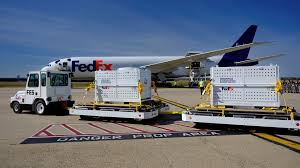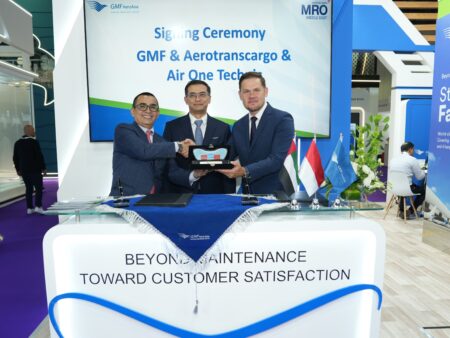Ankit Kumar, CEO, Skye Air,predicts a transformative shift in pharmaceutical logistics driven by e-commerce and globalization. Drones offer rapid, precise delivery, optimise supply chains, and ensure temperature-sensitive medication integrity, enhancing healthcare access and efficiency.

Collaborative efforts foster ongoing enhancement, elevating the overall customer experience in pharma logistics
Ankit Kumar emphasises a rising trend in healthcare logistics, characterised by strategic partnerships with esteemed institutions and the integration of advanced technologies like drones. These innovations facilitate swift and efficient medical supply delivery, bolstering healthcare services. Collaborations with pharmaceutical entities drive further progress, advancing the pharmaceutical sector significantly. This trend underscores a growing commitment to innovation and efficiency in healthcare logistics, ultimately benefiting both patients and healthcare providers.
Future trends
In India, future trends in pharmaceutical logistics are poised for substantial shifts, driven by the intersection of e-commerce expansion and globalization. The rapid growth of e-commerce platforms necessitates efficient pharmaceutical delivery, a challenge met by drones, which enable precise and swift distribution even to remote areas, thus bridging healthcare disparities. As global supply chains evolve, streamlined logistics operations are crucial for seamless pharmaceutical flow across borders. Drones play a pivotal role in enhancing delivery speed, optimising supply chain management, reducing costs, and mitigating the risks associated with traditional transportation.
Additionally, the integration of drones aligns with the broader trend of digitalization and automation, offering real-time monitoring capabilities vital for preserving the integrity of temperature-sensitive medications during transit. This becomes particularly significant in India, where climatic variations pose challenges to pharmaceutical quality assurance. Overall, the future of pharmaceutical logistics in India foresees a transformative impact, with drones and advanced technologies driving efficiency and efficacy in supply chain management.
Synergy
In the realm of drone delivery systems, pharmaceutical companies are partnering with logistics firms to revolutionise operations and enhance satisfaction. Through strategic alliances, they streamline distribution, ensuring reliable medication delivery. Leveraging logistics expertise, they optimise supply chains with advanced tracking and analytics, overcoming logistical challenges and reaching remote areas efficiently. Collaboration extends beyond delivery, prioritising regulatory compliance and quality control to maintain medication integrity. By adhering to standards and safety protocols, they ensure medications remain effective, bolstering patient confidence. This collaborative effort fosters ongoing enhancement, elevating the overall customer experience in pharmaceutical logistics.
Logistics considerations
When selecting logistics partners for pharmaceutical transportation and distribution, several crucial factors come into play:
- Regulatory Compliance: Adhering to strict regulations set by bodies like the DGCA is essential. Partners must demonstrate a strong commitment to compliance to ensure shipments meet all requirements.
- Tracking and Monitoring: Real-time visibility of shipments is vital for transparency and accountability. Partners with reliable tracking systems enable continuous monitoring, facilitating proactive decision-making and minimising risks.
- Experience and Expertise: Partnering with experienced logistics providers ensures proficiency in handling pharmaceuticals, especially temperature-sensitive products. Skilled partners maintain strict temperature control throughout the supply chain, safeguarding product integrity.
- Temperature Management: Effective temperature control is critical for preserving medication quality. Partners equipped with advanced temperature management systems ensure pharmaceuticals remain within specified temperature ranges, mitigating the risk of degradation.
These considerations guarantee safe and efficient transportation while maintaining product efficacy and safety.











